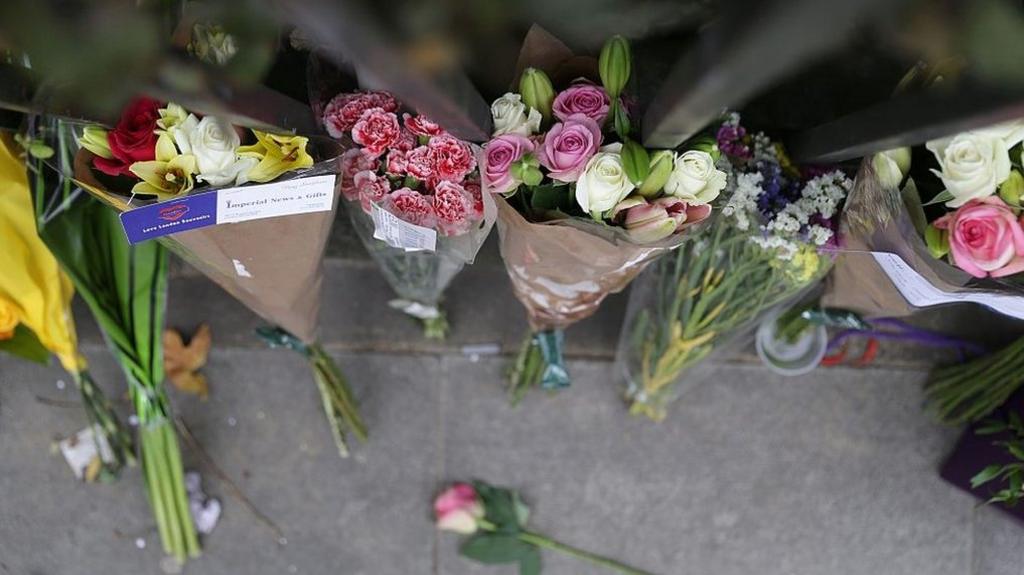Knife crime: Why are more youths carrying knives?
- Published
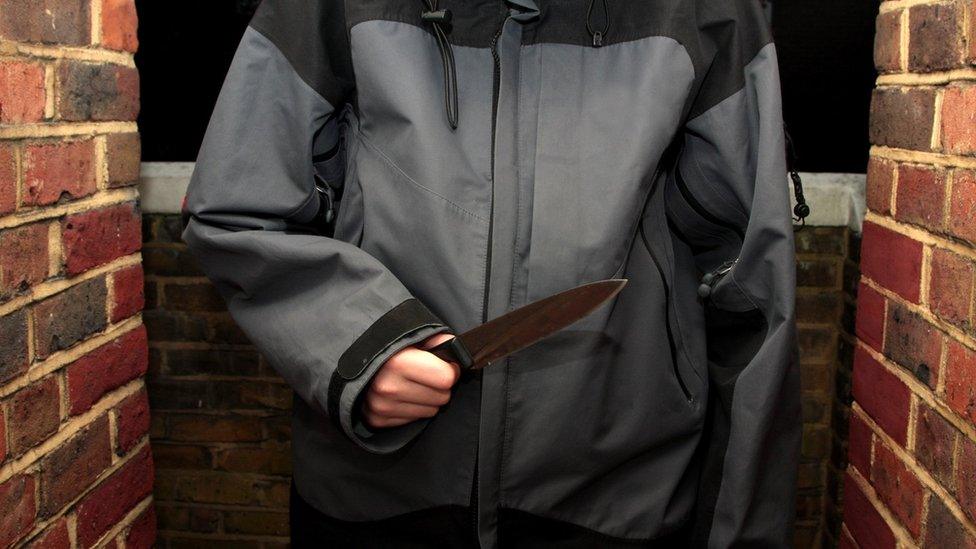
Knife crime is on the rise across the UK, particularly in London, and police say most of those caught carrying blades have no links to gangs. So why are more young people carrying knives?
"There are situations where your fists aren't going to help you. That's why people carry knives. People are scared."
Dontae, 15, from south-east London, has never been in a gang, although he says he has carried a knife in the past.
He believes boys carry blades because they want protection from each other.
"They're thinking, if there is sufficient danger, then I'm going to pull it out, threaten with it then get rid of it.
"You can't always roll with your friends. You're not always going to have someone to back you."
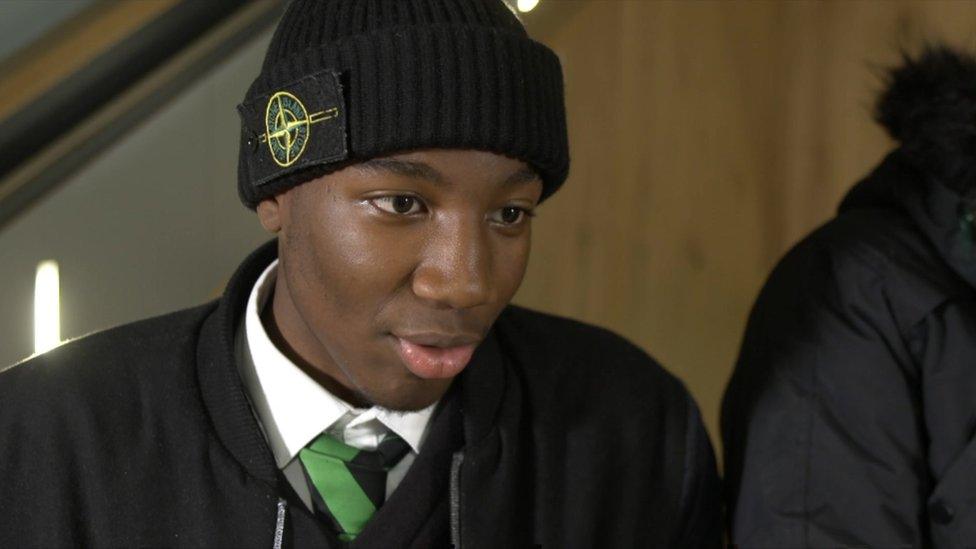
Dontae says some young people are willing to risk carrying knives because they want protection
Knife crime has risen by 9% across the UK, and in London it has increased by 16% in the past two years.
The police say the type of person involved has changed too.
Whereas in the past it was often a gang-related issue, now they estimate 75% of those caught have no connection to gangs.
This can make it harder for officers to target those responsible.
Knife crime: Why are more young people carrying blades?
Now, a cross-party group of politicians say they are determined to find solutions to the rising level of knife crime on Britain's housing estates.
Set up by Labour MP Vicky Foxcroft, the Youth Violence Commission, external is meeting with the police, authorities and youngsters to try to find solutions.
"We're very much focusing on what we can do as a society, to make sure young people don't carry knives," she says.
"It's simply not OK for young people to be going to round stabbing each other."
Ms Foxcroft says the commission will look at punishments and policies such as stop and search, and consider more pastoral options such as more youth clubs and opportunities for young people in inner cities. Its findings will be released in 2017.
Malika, who is 17 and also from south-east London, has had two of her friends stabbed to death.
One of them was actually killed by another of her friends. She sometimes visits him in jail.
"It's really hard to see the victim and the murderer and to know them both," she says.
"And you don't really know what happened or how the argument started, but it's just a little argument and one boy has died and the other is in prison."
The problem is overwhelmingly a young male one.
In London, 95% of those caught with a knife are male and 60% are under 25 years old.
In London this year, 15 people under the age of 25 have been stabbed to death, 10 of them teenagers.
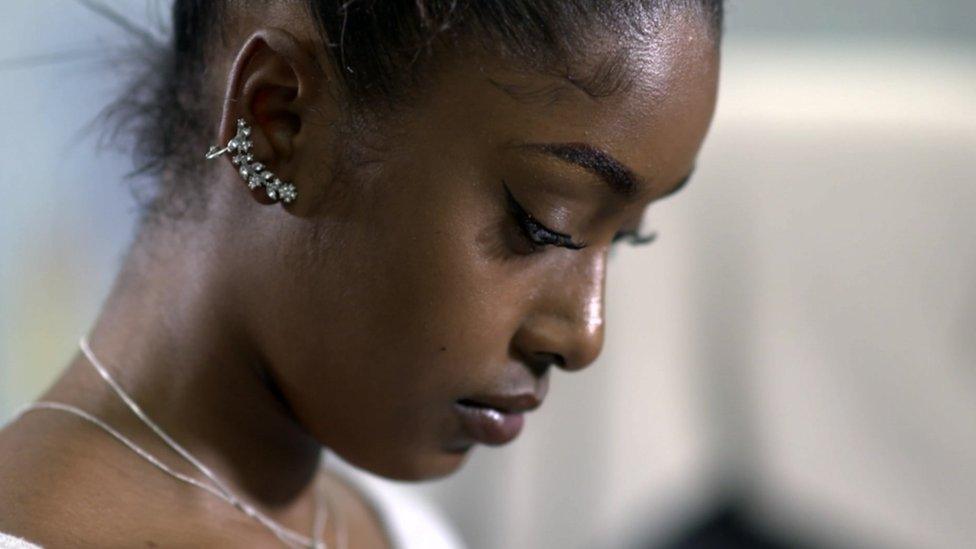
Malika believes the current rise in knife carrying is going to increase further
Orlando, another Londoner, is 18 and knows two people in jail for knife crime offences. He thinks the root problem is far deeper.
"No-one is born with a knife, but what people are also not born with is purpose. People where we live, we ain't got no purpose," he says.
"We don't know our worth."
Tekisha, who is 15, agrees. She says boys try to pretend they are tough.
"When you're consistently shown one image, you're going to start to conform to that image," she says.
"A lot of young people living in this part of London are conforming to this 'road man' persona, and I know a lot of people who think that, because of where they live, they have to act in a certain way and carry themselves a certain way."
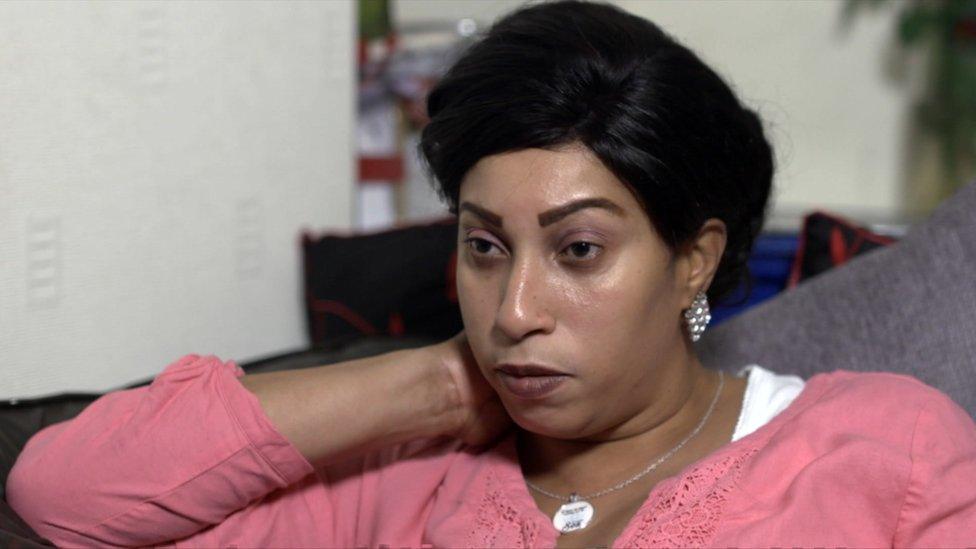
Sharon Fearon, whose son was stabbed to death, wants tougher punishments for carrying knives
Sentences for knife crime have increased over the past 18 months. Now, if you are an adult and are caught twice with a knife, you will go to jail.
If you are under 16, you could be given a custodial sentence but are more likely to get community service.
The Sentencing Council is reviewing this and will publish its revised findings next year.
But Dontae says people are not scared of jail.
"People would rather risk it than actually get hurt by the weapon itself," he says.
"So for them, going to jail would be a better alternative to them not seeing the next day."
And Malika does not think tougher sentences will help.
"It's more about understanding, more opportunities, more deeper understanding of why the young person actually commits the crime," she says.
But she says the problem is becoming rife, and she is convinced it is going to get worse.
'Tougher sentences'
Sharon Fearon thinks tougher penalties are the only answer. Her 17-year-old son, Shaquan, was stabbed to death last year.
Two teenagers were arrested and the case went to two trials, but on each occasion the jury was hung and the case was dismissed.
Sharon feels the system has let her down because no-one has been punished for her son's death.
"What message is this sending out to young people?" she says. "They're just going to carry knives.
"It needs sentence for carrying the knife itself. Straight away, even if you walk with the knife once.
"If kids don't get punishment for carrying knives, how many other mothers will be like me?"
The Victoria Derbyshire programme is broadcast on weekdays between 09:00 and 11:00 on BBC Two and the BBC News channel.
- Published6 December 2016
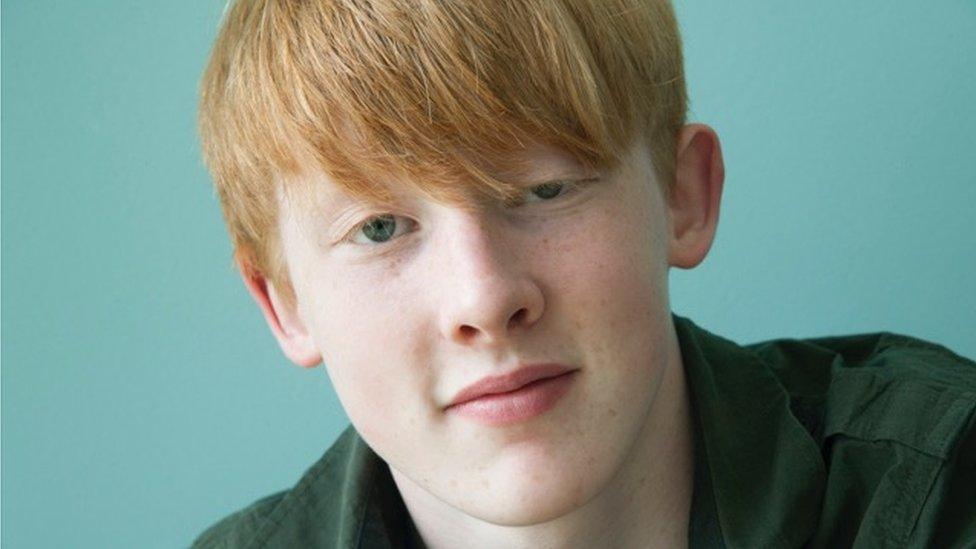
- Published6 October 2016
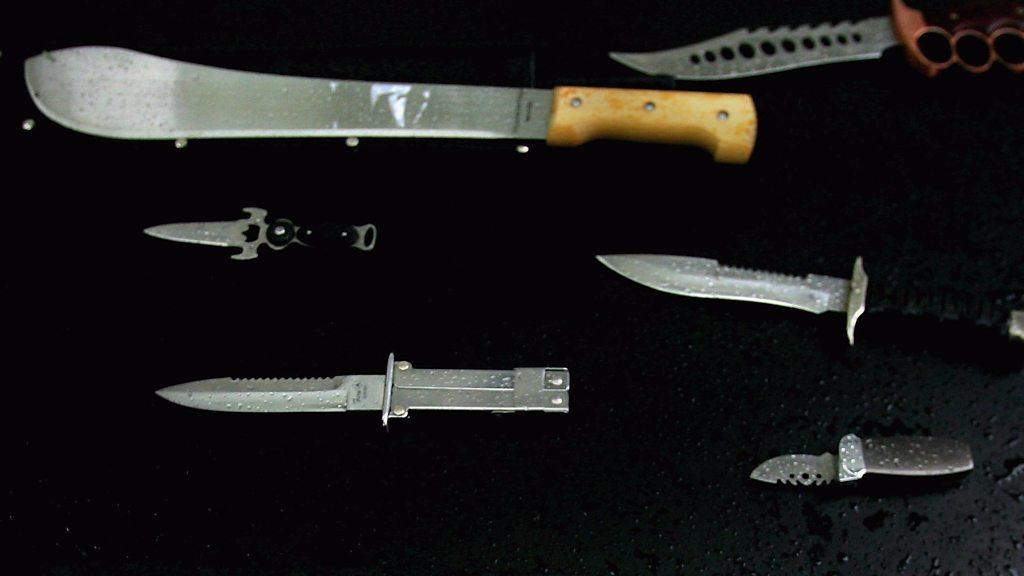
- Published21 September 2016
